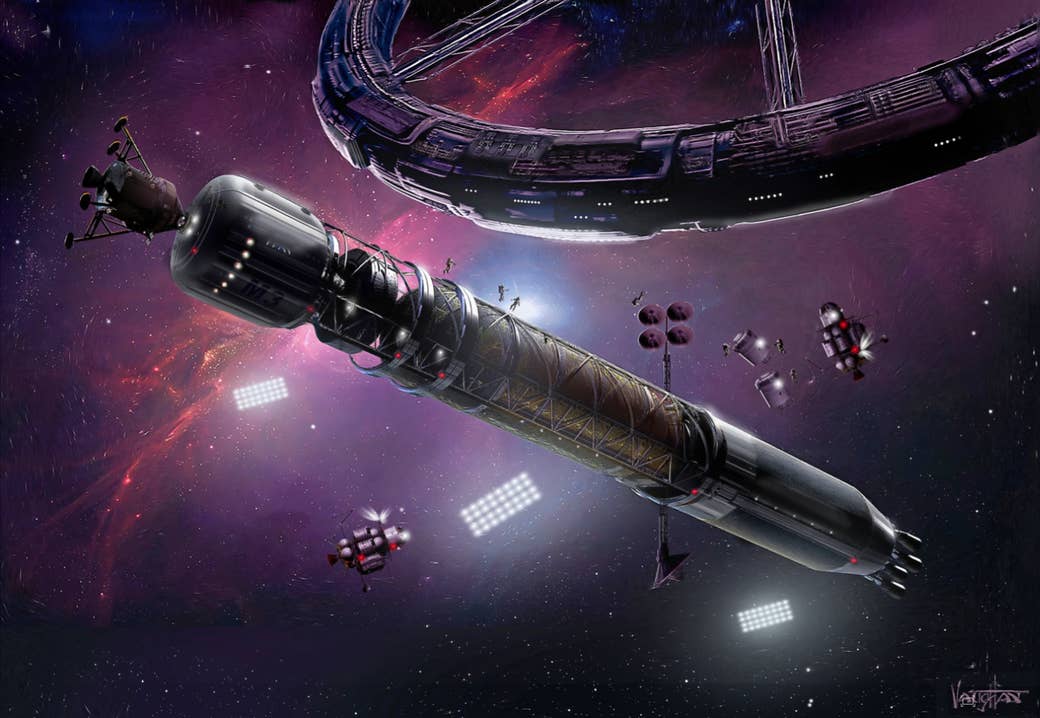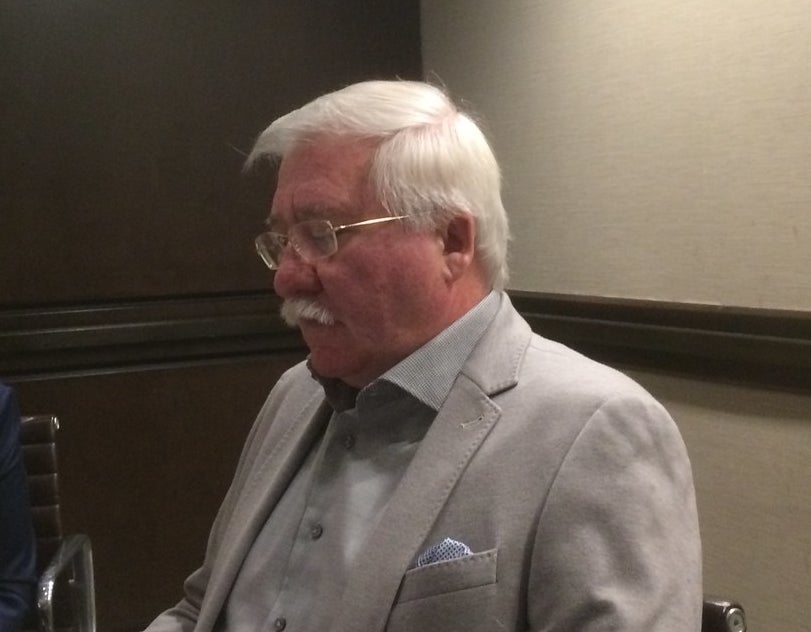
Asgardia, the first “space kingdom,” has a flag, a constitution and now, its first satellite — a shoebox-sized box awaiting release into orbit from the International Space Station.
“We have our territory in space,” said Igor Ashurbeyli, the Azerbaijani founder of the Aerospace International Research Center and the self-declared king of Asgardia. The Asgardia-1 satellite, just 8 inches long, now floats aboard the ISS.
Early next month, Asgardia-1 will be rocketed to a higher orbit, some 311 miles above the earth, where it will operate on its own. “Then we will celebrate,” Ashurbeyli told BuzzFeed News through his translator.
Space law experts, such as Mark Sundahl of the Global Space Law Center at Cleveland State University, are pretty dubious about its chances of ascending to nationhood. A spacecraft isn’t territory, they argue, just like a ship in the ocean isn’t a country.

Technically, Asgardia-1 is a science experiment designed to measure the effects of space radiation on hard drives, and Ashurbeyli, a reputed billionaire, paid the Texas-based NanoRacks company to launch it on a November 12 space station resupply mission. The satellite’s hard drive can hold the personal data of more than a million people, or “space citizens,” as Ashurbeyli calls them, people from all over Earth.
(Asgardia has not disclosed the cost of the launch, but launch prices for similarly small satellites start at $85,000.)
But he has far bigger ambitions, with plans to petition the United Nations for recognition as a sovereign nation in June, and a constitution, flag, anthem, and parliamentary elections underway.
“Eventually, we plan a moon base,” Ashurbeyli said, as well as space arks filled with “citizens of the Universe.” Asgardia already claims some 144,000 would-be citizens, he said, who come from 204 countries, and it has an elaborate parliamentary election now under way.

Asgardia joins ongoing “seasteading” attempts to set up nations beyond the territorial reach of any other countries, with hopes of dodging taxes and poor people. The most famous example is the “Principality of Sealand,” an offshore British naval platform that a pirate radio station impresario took over in the 1960s, battling another radio pirate with guns and petrol bombs for its ownership. Sealand ran, quite colorfully, for decades, though no other nation ever formally recognized it.
Ashurbeyli disavows any comparison to such past attempts, saying Asgardia aims to be inclusive, opening citizenship to anyone, not just those lucky enough to be born in countries with space stations. Since Asgardia was announced last year, most applications for citizenship have come from Turkey, he said, followed by China.
“What's fascinating is that people used to make territorial claims by walking on islands and planting flags,” exploration historian Michael Robinson of the University of Hartford told BuzzFeed News by email. “Now it seems enough to establish a virtual presence through personal data — as if our avatars were enough to take possession of — of what? — an orbital arc made by a nano-satellite? The next step in our evolution: virtual conquests!”

But from a legal viewpoint, Asgardia faces tough sledding. “A satellite cannot be a territory,” Michael J. Listner of Space Law & Policy Solutions in East Rochester, New Hampshire, told BuzzFeed News. “It has as much legitimacy as the Principality of Sealand,” which a United Nations convention ruled out of bounds for sovereignty in 1994, on the grounds that artificial islands don’t count as territory.
What’s more, as a satellite launched from the US and registered there, Asgardia-1 lacks any standing as an independent nation. It’s unlikely that any nation would let Asgardia operate its own embassy operating with diplomatic immunity, Listner said. Plus it really doesn’t have a permanent population, a long-standing prerequisite for nationhood.
The only “wild card” in Asgardia’s bid for sovereignty is the petition for recognition at the United Nations, Listner wrote in an October essay on the space kingdom. “The concern is how many other schemes Asgardia will inspire to further distract from legitimate private efforts to develop outer space.”
International space law already provides for the free use of outer space for the benefit of all mankind, Sundahl added. And the Outer Space Treaty prohibits any nation from claiming territory on the moon.

“Asgardia appears to have been created to solve a problem that doesn't exist,” Sundahl said. “On the more positive side, Asgardia is a thought-provoking concept that has inspired many people to think about the future of humans in space.”
The Asgardia-1 satellite is expected to function for a year in orbit, until space radiation fries its circuits. The company collecting the check for its launch, NanoRacks, doesn’t take a position on Asgardia’s national aspirations.
“For us at NanoRacks, this is an exciting program where an entirely new group of people around the world are becoming excited about space exploration,” NanoRacks marketing director Abby Dickes told BuzzFeed News. “We wish Asgardia mission success as they aim to realize their dreams.”

